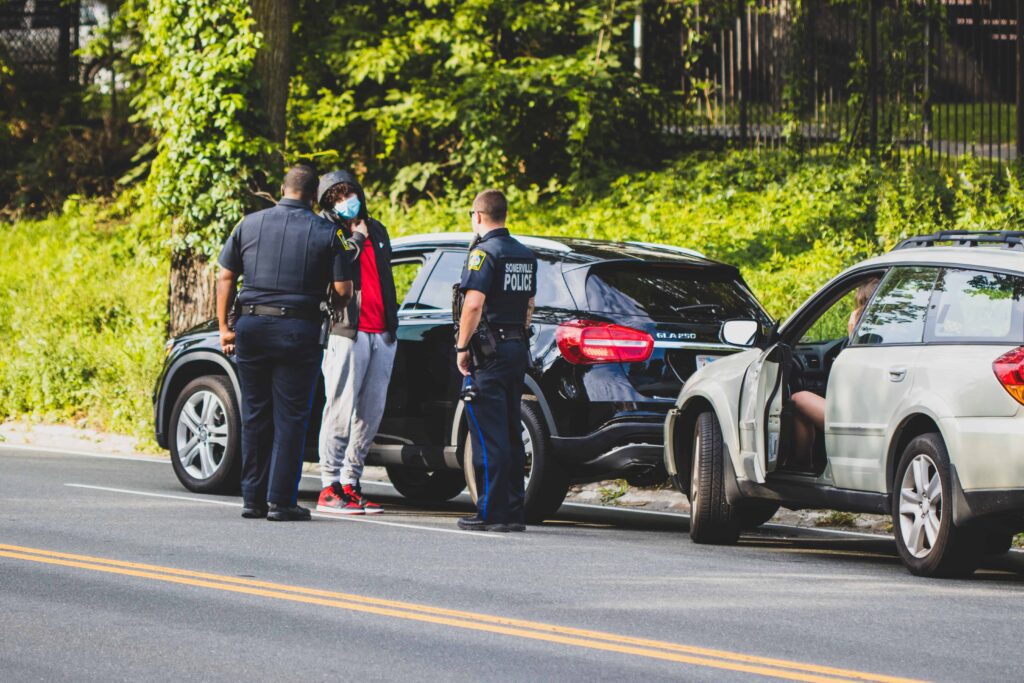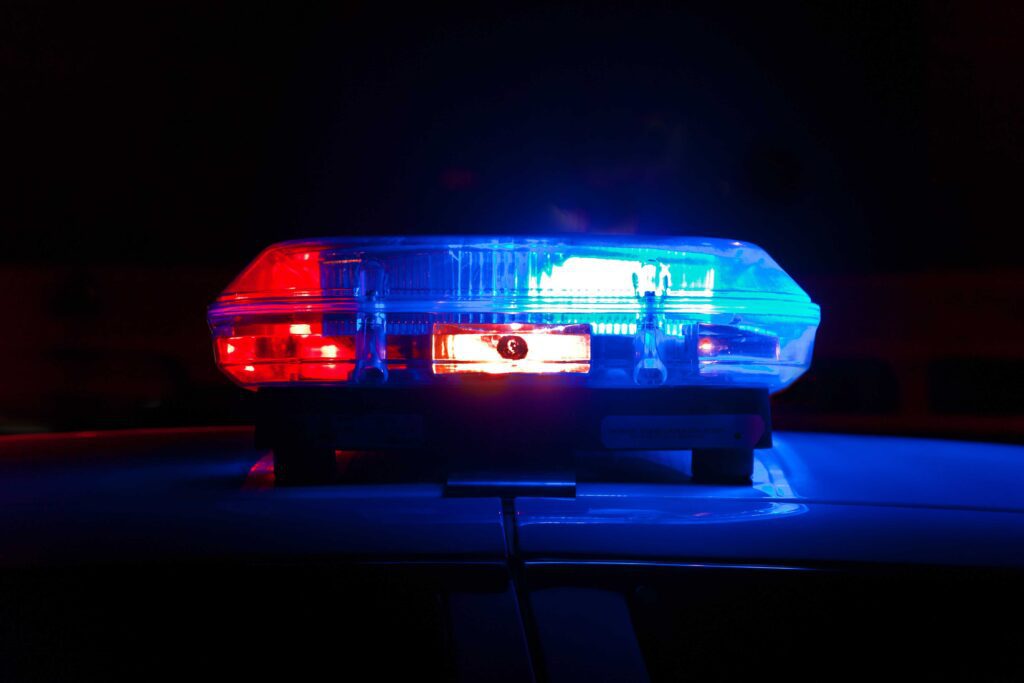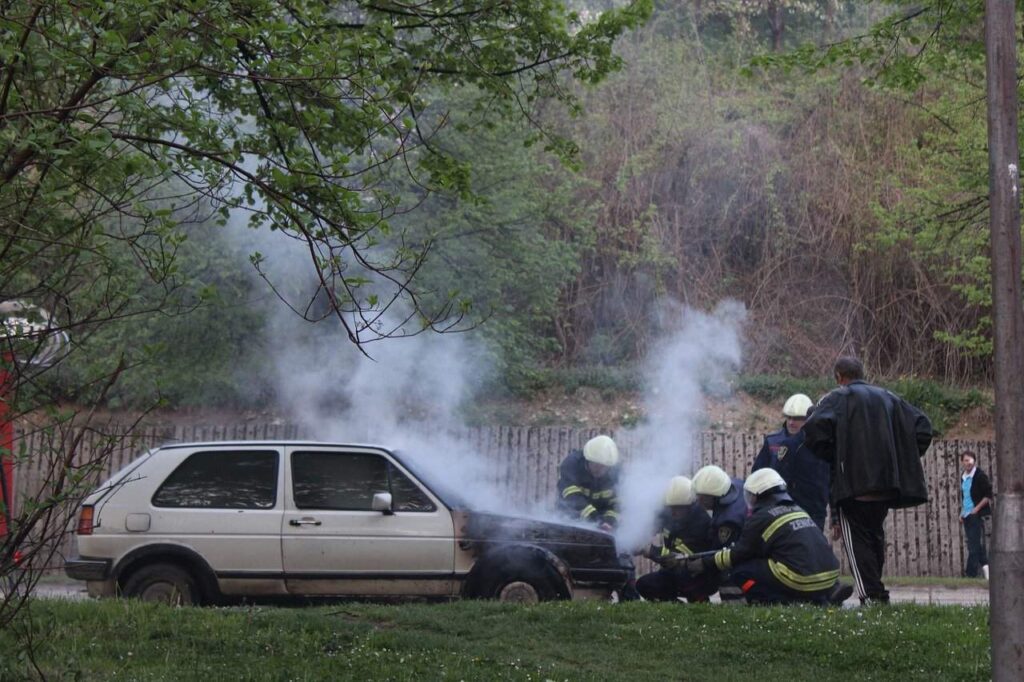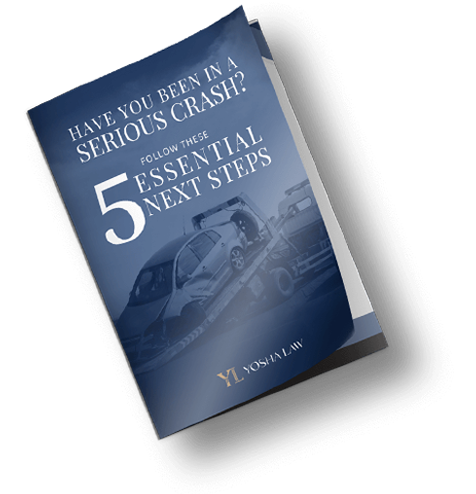When you’ve been involved in a motor vehicle accident, it’s tempting to leave after you’ve made sure that no one was hurt, information was exchanged, and property damages were minimal. You’ve got places to go and people to see! Not so fast; leaving that accident scene may not be a good idea. Let’s take a look at leaving an accident scene, even if there are no injuries.
Leaving the scene vs. hit-and-run
Before we dive into this topic too deeply, let’s take a look at what leaving the scene of an accident if no one is injured is, and what it isn’t.
Leaving the scene after exchanging information and ensuring no one was hurt and the property damage is minimal is far different than a hit-and-run. Per the AAA Foundation for Traffic Safety, hit-and-run accidents reached an alarming 737,100 in 2015, or once every 43 seconds. During 2016, there were 2,049 fatalities from hit-and-run accidents.
A hit-and-run is serious business. It means fleeing the scene of an accident with no intention of notifying authorities or exchanging information, and no attempt to assess damages and ensure the other drivers were ok. This turns what might only be considered a misdemeanor into a felony.
Leaving the scene of an accident, by contrast, means that all obligations were taken care of before mutually agreeing to leave the scene, such as:
- Exchanging license, registration, and insurance information
- Ensuring no one is injured
- Making sure property damages are minimal
Drivers may consider leaving the scene if police are too busy to respond in a timely way, the accident is blocking traffic, no one is injured, and all information is exchanged. These are nuisance accidents, such as low-impact fender benders.
Why shouldn’t I leave the scene if no one is injured?
You’re usually better off waiting for law enforcement to arrive, even if the accident was minimal. Here are a few reasons why you should stick around.
The other driver might get creative
Even though you have seen the damages to the other vehicle, the driver can claim anything they want once you’ve left the scene. This could include “major injuries” that weren’t apparent on the scene and attempting to claim property damage that was present on the car before the accident. It now becomes a he-said-she-said situation that will be hard to untangle without a police report.
It might be against the law
While every state has different laws regarding the legality of leaving the scene, most do have very specific language regarding these situations.
In Indiana, for instance, It’s specifically spelled out in the Indiana Codes, 9-26-2-4 Sec. 4:
(a) A law enforcement officer shall enforce IC 9-21 and IC 9-25 against the parties to a motor vehicle accident on private property if the accident:
- (1) occurs on commercial or other private property that is open to the public; and
- (2) results in:
- (A) personal injury or death; or
- (B) property damage to an apparent extent greater than two thousand five hundred dollars ($2,500).
- (b) If the apparent extent of the total property damage is less than the amount in subsection (a)(2)(B), a law enforcement officer shall ensure that each operator is in compliance with the requirements of IC 9-26-1-1.1.
In other words, a law enforcement officer is required to fill out a police report on accidents.
A big problem is that most people are bad at estimating damages…really, really bad. What looks like a $500 scratch may be far more expensive than you realize. Now, what seemed to be minimal damages has turned into several thousand dollars worth of repairs…and, in the case of the code above, you’ve unwittingly broken the law by leaving before the police could file a report.
You may need the information in the police report to collect damages
While it’s certainly possible to file insurance claims without a police report, you’ll find this document to be immensely helpful. There is information on that report regarding the direction of travel, speeds involved, and other helpful observations.
Additionally, a police officer may be able to access camera footage, analyze the scene, and make observations that you may miss. He’ll be able to accurately document damages and injuries, and, if necessary, can act as a witness when you file a claim.
The other driver may have MVA issues
Waiting on law enforcement to arrive allows other issues to be uncovered, such as insurance lapses, a suspended or invalid registration or license, or the other driver operating impaired. While some of these issues may not directly impact you, they can help you make a stronger claim.
Additionally, an insurance lapse means you can’t file against the insurance and need to file a claim under uninsured motorist policies. If you aren’t aware that the other driver was uninsured, you’ll be waiting longer for a settlement because you will need to file a new claim.
Not everyone is on their best behavior at an accident scene
The operator or passengers of the other vehicle may be agitated and combative. This makes it unsafe to approach them for information exchange. It’s best to let the authorities handle these cases to ensure you safely gather all the information you need.
Some injuries aren’t immediately apparent
In most states, there is a time limit to trace an injury back to an accident. Unfortunately, some injuries take a while to affect you. The police report will give you the exact time and date of the incident to present to doctors, lawyers, and insurance carriers along with factors that may contribute to your injuries, such as speed. A personal injury lawyer in Bloomington will know exactly how to guide you in this situation. They’ll know what paperwork is necessary and to what type of compensation you might be entitled.
The other driver may admit fault
If the other driver admits fault and there is no documentation, they can easily recant the statement. Law enforcement will be able to document the other driver’s statement fully on the police report.
What to Do After an Accident
There is a lot to consider after you’ve been involved in an accident. Follow these steps to make sure you are compliant with the law and that you have everything you need to file a claim. Note that your health comes first; if you are injured, seek medical attention immediately.
- Make sure you can exit the vehicle safely: You may need to move vehicles out of traffic before the police arrive so the investigation can be completed safely.
- Contact the authorities: The accident should be reported via 911 as soon as you assess the other driver and all passengers for injuries. If you are injured, remain in your car and wait for help.
- Begin gathering information if it’s safe to do so: Remember, not everyone can remain calm following an accident. If the other driver is calm, you can begin to gather information. If they (or others in the vehicle) seem combative, do not approach them; wait for law enforcement.
- Documentation: Take notes including the names and badge numbers of the officers on the scene, any witness statements, the names and addresses of everyone in the other vehicle, the date, time, and location of the accident, and photos to include the other driver’s license plate and 360° pictures of both vehicles.
- Get a copy of the police report: Find out how you can obtain a copy of the police report.
- Make notifications: Contact a qualified attorney and your insurance company to start the process. It’s important to do this as soon as possible because the other driver may start a claim, and you need to make sure you are properly represented to field questions from their insurance company.
What information do I collect after an accident?
There is some basic information that your insurance company and attorneys will need to file a claim. These include:
- Full name and contact information
- Driver’s license and license plate number
- Insurance company and policy number
- Model and color of the other vehicle
- Accident location
Never admit fault…
This is one situation where your words can hurt you. Never tell the other driver that you didn’t see a light, didn’t stop at a stop sign, were distracted, or any other incriminating admissions. Even something as natural as “I’m sorry” can be used against you. These statements can hurt your case. This is another reason to let an attorney handle your claim.
…And never decide to “settle things between you”
Another reason to stay at the accident scene, even if no one was injured, is to avoid the inevitable “let’s just handle this ourselves” that follows many minor accidents. Don’t fall into this trap. You may find yourself on the hook for “major” injuries, expensive car repairs that don’t align with the damages incurred at the scene, and even fraudulent contact information.
Leave it to the pros
An experienced attorney will help gather the facts in your case. They can help identify the liable party, and fight for fair compensation for property damages and injuries. This compensation could include emotional distress, medical costs, pain and suffering, and lost wages. Not sure if you have a case? Contact an experienced personal injury lawyer and let them help you decide on the best course of action for you.










